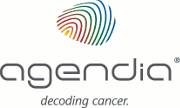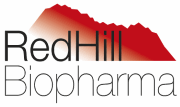- Study will evaluate preliminary safety and effectiveness in a cohort of up to 24 patients
- Innovative regenerative technology will use patients’ own skin cells to try to close chronic Diabetic Foot Ulcer (DFUs)
- DFUs represent a significant new potential patient population for Avita Medical
Northridge, CA, USA, Perth, Australia and Cambridge, United Kingdom, May 31, 2016 / B3C newswire / -- The first patient suffering from a Diabetic Foot Ulcer (DFU) has been enrolled in a clinical trial in the UK aimed at evaluating the feasibility of the medical device ReGenerCell™ in the safe and effective treatment of this widespread complication of diabetes, Avita Medical said today.
Avita Medical Ltd. (ASX: AVH), (OTCQX: AVMXY), a regenerative medicine company specializing in the treatment of wounds and skin defects, said the new research takes Avita into a significant new indication area, after the recent release of positive study outcomes for ReGenerCell™ in the treatment Venous Leg Ulcers (VLUs). The DFU clinical study has now started at Manchester Royal Infirmary, with London’s King’s College and Northwick Park hospitals to join shortly. DFUs are a common and growing complication of diabetes, and can often lead to amputation amongst the UK’s 4 million diabetics, whose condition costs the NHS £10bn a year to treat.(1)
The Company said the first patient had been treated at the Manchester Royal Infirmary and that the study aimed to enroll up to 24 patients with DFUs, who will each be followed over a 26-week evaluation period. The ReGenerCell™ device enables medical professionals to create an autologous suspension of skin cells, which is then applied to the patient’s wound to trigger healing. The treatment will be evaluated as an adjunct to standard care treatments, such as debridement, cleansing, dressings, and offloading. As well as the key outcome measures of incidence of healing and rate of wound closure, the study will also explore patient and physician satisfaction, the Company said.
“We are keen to evaluate any treatment that has the potential to improve patient care and at the same time reduce cost,” said Mr Tawqeer Rashid, Chief Investigator and Consultant Vascular Surgeon at Manchester Royal Infirmary. “With this study we will be evaluating the clinical benefits of the ReGenerCell™ treatment for patients whose quality of life is often severely reduced.”
The Company said it had embarked on the study following many successful patient outcomes, indicating that the regenerative approach could be a very effective means of treating DFUs, which are typically long-term open wounds resistant to most standard treatments. Pioneering work at a wound clinic in Italy achieved complete wound closure for three DFUs of four within 50 days of treatment (2), and similarly successful outcomes have been shown in DFU patients treated in the UK, notably those treated by Dr Harvey Chant at the Royal Cornwall Hospital, the Company said.
“Clinicians from different parts of the world have found ReGenerCell™ to be an effective treatment of diabetic foot ulcers in their practices. A clinical study will allow us to formalize our understanding of the treatment effect and will serve in the development of the clinical guidance and evidence needed for commercialization,” said Andrew Quick, Avita’s Senior Vice President of Clinical Development.
The Company said that diabetes was a growing and significant healthcare problem in many of the markets in which it has approval, including Australia (1.7million) (3) and China, which has 114 million diabetics: 1 in 3 in the world. (4)
“Most healthcare authorities around the world are facing an epidemic of diabetes and one of their most expensive challenges is how to treat foot ulcers which, sadly, once started, typically lead to a slow and lingering decline,” said Avita CEO Adam Kelliher. “If our approach can get these ulcers to heal, then it could offer hope to many diabetics around the world.”
Using a small sample of skin, the ReGenerCell™ device enables the production of a Regenerative Epithelial Suspension (RES™). The autologous suspension contains the multi-phenotype cells and wound-healing factors essential for natural healthy skin regeneration and healing. The procedure performed at the patient’s bedside takes about 30 minutes from collecting the skin sample to treatment of the affected area. In cases of chronic wounds, including DFUs and VLUs, the suspension is sprayed or dripped onto the skin. It has been shown to significantly reduce the healing time of wounds and leaves the patient with skin with similar elasticity, texture and pigmentation to surrounding skin, with limited scarring.
About Avita Medical Ltd
Avita Medical develops and distributes regenerative products for the treatment of a broad range of wounds, scars and skin defects. Avita’s patented and proprietary collection and application technology provides innovative treatment solutions derived from a patient’s own skin. The company’s lead product, ReCell®, is used in the treatment of a wide variety of burns, plastic, reconstructive and cosmetic procedures. ReCell® is patented, CE-marked for Europe, TGA-registered in Australia, and CFDA-cleared in China. In the United States, ReCell® is an investigational device limited by federal law to investigational use.
Contacts
Avita Medical Ltd
Adam Kelliher
Chief Executive Officer
+44 (0) 1763 269 772
akelliher@avitamedical.com
Tim Rooney
Chief Financial Officer
+ 1 (818) 356-9400
trooney@avitamedical.com
Gabriel Chiappini
Company Secretary
+61 (0) 8 9474 7738
gabriel@laurus.net.au
Media Contacts
UK/EU
Instinctif Partners
Gemma Howe/Sue Charles
Phone: +44 (0)20 7866 7860
avitamedical@instinctif.com
USA
The Ruth Group
David Burke, Investor Relations
Kirsten Thomas, Public Relations
+1 (646) 536-7009 / +1 (508) 280-6592
dburke@theruthgroup.com / kthomas@theruthgroup.com
Australia
Monsoon Communications
Dean Felton
Investor Relations / PR
+61 (0) 3 9620 3333
deanf@monsoon.com.au
(1) https://www.diabetes.org.uk/About_us/News/Number-of-people-with-diabetes-reaches-over-4-million/
(2) DeAngelis B, Migner A, Lucarini L, Agovino A, Cervelli V. The use of a non-cultured autologous cell suspension to repair chronic ulcers. International Wound Journal 2013; doi: 10.1111./iwj. 12047 (Epub)
(3) https://www.diabetesaustralia.com.au/diabetes-in-australia
(4) Yu Xu, Limin Wang, Jiang He, et al. Prevalence and Control of Diabetes in Chinese Adults. JAMA 2013; 310(9): 948-59




























